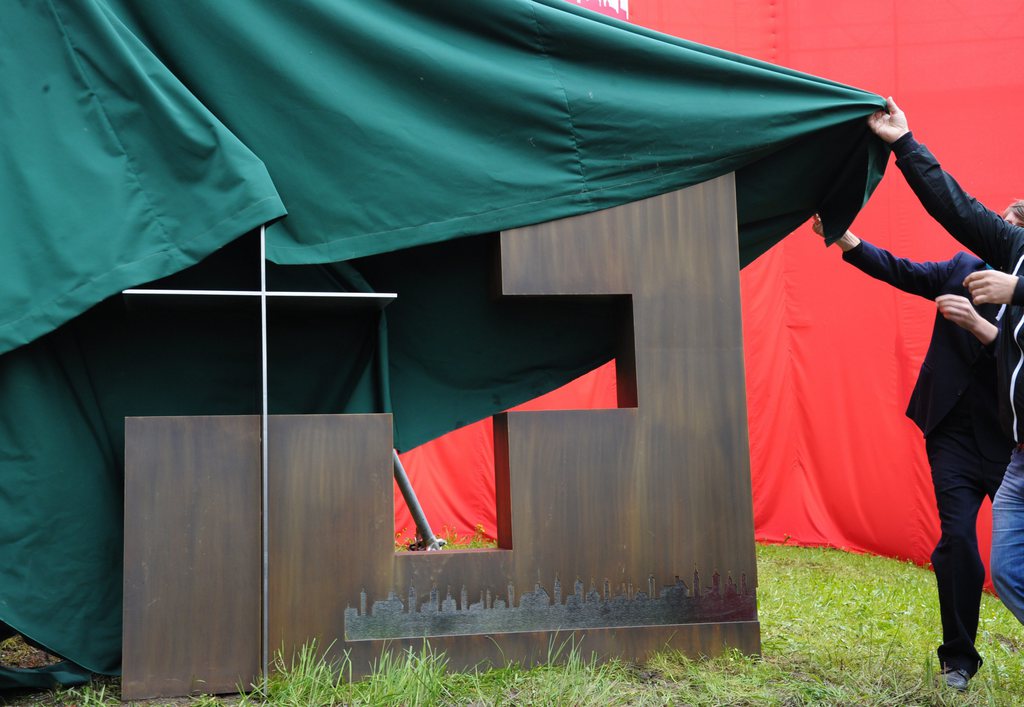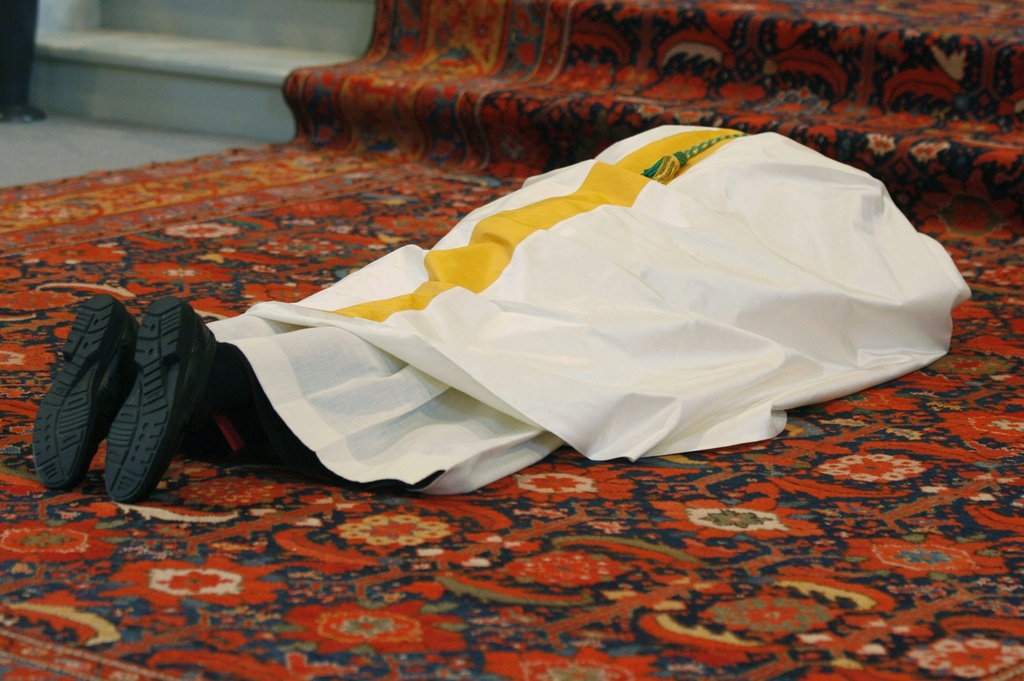Church tax issue divides Swiss Catholics

Campaigns to abolish church tax on companies have triggered a wide-ranging debate on state support for religion in Switzerland. The future of the tax is emerging as a particular bone of contention between conservatives and liberals in the Roman Catholic Church.
In most of Switzerland, individuals registered as church members pay a direct tax on their income for the upkeep of the Protestant and Roman Catholic churches. In 20 cantons, the church tax is also collected from legal persons, which means essentially businesses.
Youth wings of the centre-right Radical Party and rightwing Swiss People’s Party have been campaigning at cantonal level to have the church tax on business abolished.
They argue that the tax is “a relic of the Middle Ages”, and that cantons that impose such a tax are less competitive on corporate tax than they could be, especially with other countries in Europe.
If the tax were to be abolished, the proponents argue, it would provide significant financial relief for businesses, resulting in more investment and jobs.
A popular initiative to abolish church tax on business is now gathering signatures in canton Nidwalden, and cantons Graubünden and Zurich will be voting on initiatives next year.
The Federal Court – the highest court in Switzerland – has repeatedly ruled that the tax is legal, René Pahud de Mortanges, law professor at the University of Fribourg, told swissinfo.ch. He recently co-authored a study of church tax on legal persons in the different cantons of Switzerland.
However, he conceded that change may come at the ballot box.
“The court has also said that if the tax is found to be no longer appropriate for political reasons, it will be up to the governments of the cantons to make changes. The cantonal initiatives to abolish the tax have to be seen in this context: they propose to change the legal situation in the cantons by political means.”
In most of Switzerland, registered members of recognised churches have to contribute to their upkeep through income tax. The money goes to the church the particular taxpayer belongs to.
In most cantons businesses also have to pay; the money is distributed in proportion to the number of church members in the canton. The tax rates vary from canton to canton.
The money is collected by the government and administered by church councils elected by the local parishioners. These bodies are independent and made up of lay people; parish clergy are members ex officio. The elected council members are organised into an assembly at cantonal level. At each public meeting they put their financial statement to a vote of the assembled church members for approval.
The tax revenues typically pay for clergy salaries, upkeep of church buildings, and social services.
Churches respond
The churches are not unanimous in their reaction.
Not surprisingly, many people in both Roman Catholic and Protestant churches, are opposed to the tax base being eroded. Without the business contribution, the churches would lose a large slice of their revenues.
“There are a lot of things we would no longer be able to do,” Klaus Odermatt, president of the Roman Catholic Church organisation in Nidwalden, told the local newspaper Neue Nidwalder Zeitung.
“For some parishes the money would run out, because the tax revenues from legal persons make up most of the funding. They would find it hard to cover their day-to-day costs and the upkeep of churches, chapels, parish centres, and meeting places. Many of the social and religious services they currently provide would have to go or be reduced, or else the state would have to take them over.”
Yet not everyone in the Roman Catholic Church is worried about the threat to revenues.
Vitus Huonder, the conservative Bishop of Chur – to whose diocese Nidwalden, Zurich and Graubünden all belong – reasons that the Church can expect solidarity from the faithful themselves, but not necessarily from businesses, which in the nature of things do not have a faith or a soul to be saved.
“Accordingly, we will remain neutral in the forthcoming political campaigns,” Giuseppe Gracia, the diocesan spokesman, announced in a press release.
Italy and Spain have traditionally had a church tax and still do, but now it is possible to contribute to a social service instead.
The Scandinavian countries have established Lutheran churches. There is a tax on church members in Denmark and Sweden, but none in Norway.
Elsewhere in Europe church tax is unknown, though national churches or other religions may be supported by the state out of general revenue.
Historically in Europe, the church tax replaced tithes. The tithe represented 10% of income and was collected on behalf of the church recognised by the monarch.
In Britain, although there is an established church, no separate tax is levied for its upkeep. In the US there has never been any such provision, because the constitution prescribes the separation of church and state.
Complete abolition?
The abolition of church tax for legal persons could be the thin end of the wedge. Could church tax for natural persons – in other words, individual taxpayers – be the next target?
“There is an important difference between these two kinds of tax,” Pahud de Mortanges points out.
“Legal persons are legally obliged to pay the tax as long as they have their registered office in the canton in question. Natural persons, on the other hand, can get out of paying the tax if they quit their church.”
“That is because freedom of religion is anchored in the constitution. So when individuals pay church tax, they are really doing it voluntarily. Such a system can hardly be objected to by the politicians or the private sector.”
Life after tax?
But conservative forces in the Roman Catholic Church would like the whole system scrapped.
Huonder’s second-in-command, Vicar-General Martin Grichting, is an outspoken advocate for its abolition. A canon law expert, he argues that church tax should be replaced by donations or a voluntary tax. He holds that the existing church-state relationship is really incompatible with canon law, for the nature of the Church is that it is hierarchical and non-democratic.
“It’s only Switzerland, Austria and Germany that have church tax in its present form,” Grichting told German Swiss TV. “Ninety-seven per cent of the world’s Catholics fund their churches in other ways.”
But could the churches in Switzerland survive completely without tax revenue?
“Depending on the canton, revenues from the tax on legal persons vary in importance,” says Pahud de Mortanges, referring to his recent study.
“So the churches would be affected to different degrees if this tax were to go. However, abolishing church tax for individuals would have a dramatic effect. This is apparent when you look at the situation in cantons Geneva and Neuchâtel, where there is no church tax and the churches – in comparison with the rest of Switzerland – have very little money. That of course has meant a dramatic reduction in the services they can provide.”
Church tax is a feature of the German-speaking countries, but with national differences. Germany taxes individuals but not legal persons. Austria has an equivalent of church tax, but it is collected by the churches themselves.
“What is unique in the Swiss system is the opportunity the church membership gets to have its say in how the tax revenues are used. [See infobox] For the Roman Catholic Church in particular that is something remarkable. It ensures a use of the Church’s financial resources that is close to the grassroots,” says Pahud de Mortanges.

In compliance with the JTI standards
More: SWI swissinfo.ch certified by the Journalism Trust Initiative









You can find an overview of ongoing debates with our journalists here . Please join us!
If you want to start a conversation about a topic raised in this article or want to report factual errors, email us at english@swissinfo.ch.